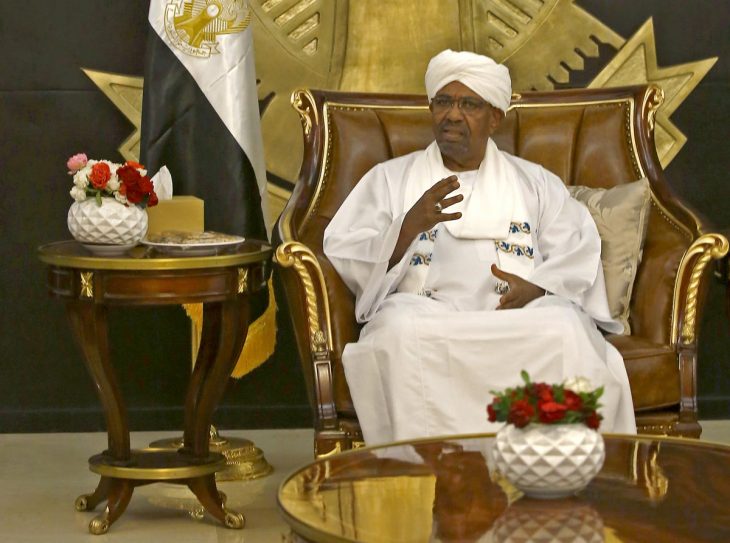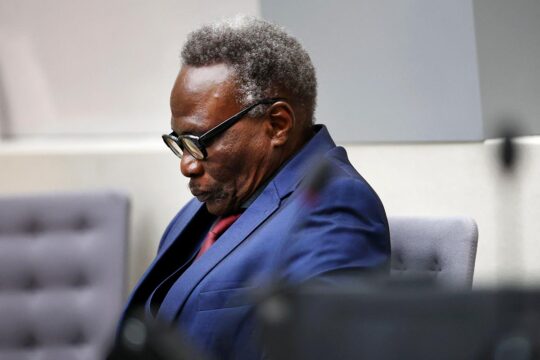Justice seemed to have dawned for the victims of Sudan’s Darfur region when the International Criminal Court (ICC) issued two arrest warrants against the Sudanese President Omar al-Bashir. Ten years later, the court is stuck with the case. What was hailed as a breakthrough of justice in March 2009 has become a liability for the court. The violence in Darfur is continuing. Bashir still travels. And, perhaps most crucially, the arrest warrants have divided ICC member states and damaged the reputation of the court.
On 4 March 2009 the ICC issued an arrest warrant against Bashir for war crimes and crimes against humanity, including murder, extermination, rape and torture. In July the following year Pre-Trial judges issued a new warrant with additional charges, including genocide.
At the time, activists hoped the arrest warrants would isolate Bashir – the first sitting head of state prosecuted by the ICC. In the last ten years, however, President Bashir has travelled to at least 33 countries who did not arrest him, including ICC State Parties like South Africa and Jordan.
A weakening factor for the ICC
Today, the arrest warrants seem from another era. They were issued at a time when support for the ICC was perhaps at its peak. A decade later, support for the ICC is at a low, international law is threatened, and multilateral cooperation is waning.
The case has functioned as a catalyst for the anger of a number of governments, particularly in Africa. It strengthened their perception of unfair prosecutions of Africans and interference in internal affairs. The governments of Burundi, South Africa and the Gambia used the Bashir case to justify their intentions to withdraw from the Rome Statute, the founding treaty of the ICC. “I don’t think it was a mistake to prosecute Bashir, but the case has poisoned the waters with African countries,” said Sudan expert and Senior Fellow at Harvard University’s François-Xavier Bagnoud Center for Health and Human Rights, Eric Reeves. African states turned against the court in large part after the ICC decided to prosecute Bashir.
The case highlights key challenges the court faces, such as the dependence on governments and the inability to secure the arrest of suspects. “The longer the arrest warrants are out there, the weaker the ICC becomes,” Reeves said. “The situation in Sudan does damage the reputation of the ICC,” agrees Mark Ellis, Executive Director of the International Bar Association. “But it is not the court’s fault.”
The Security Council, which referred the situation in Darfur to the ICC in 2006, would have the power to force governments to support the court. But “the Security Council has done absolutely nothing to sanction non-cooperation,” Ellis said. “The result is that non-cooperative states are not sanctioned and, consequently, continue along the same belligerent path.”
A powerless Prosecutor
For the Office of the Prosecutor (OTP) this has serious repercussions. ICC investigators are barred from entering Sudan, have little political backing internationally and receive no financial support from the Security Council. So far, they went on 35 missions to 18 countries to collect evidence and speak to witnesses, an official report states. Last December Prosecutor Fatou Bensouda told the Security Council that “significant progress was achieved by the Darfur investigation team” and that new evidence had been collected in 2018.
However, the investigative progress can’t hide the fact that without the cooperation of governments, there will be no trial. “It’s very demoralising,” said Reeves.
The ICC stands or falls by its ability to prosecute Bashir.
There is also a risk that the prosecutor builds yet another case on shaky grounds. After the former Congolese Vice-President Jean-Pierre Bemba and the former President of Cote d’Ivoire Laurent Gbagbo were acquitted, Bashir is the last remaining high-profile case before the ICC. “The ICC stands or falls by its ability to prosecute Bashir”, Reeves said.
New Pressure
At the national level, the situation hasn’t become easier for the court either. In 2009, just minutes after the arrest warrants were announced, thousands of people took to the streets against the ICC and in support of Bashir. Since last December they march to demand his resignation, despite police bullets, tear gas and a de facto ban on demonstrations. Experts argue that Bashir, after 30 years in power, could be forced to quit soon.
As Bashir is being pushed closer towards his resignation, the ICC arrest warrant has seemed to become a barrier rather than an opportunity. Pressure is mounting to freeze the case and allow him to step down, without having to face judges in The Hague. The International Crisis Group (ICG), an independent organisation providing conflict analysis, recommended repeatedly that the United States and the European Union create incentives for Bashir to step down, including a stay of the ICC proceedings. The ICG said last week the Security Council should use its power under Article 16 of the Rome Statute and defer the case for 12 months or longer.
Influential Africans support the idea. Mo Ibrahim, a Sudan-born entrepreneur and one of Africa’s richest persons, said the ICC should drop the charges if Bashir agrees to step down. “If that is going to save lives, if it is going to save us from a bloody civil war, let the man go in peace,” Ibrahim said in an interview. “Although I hate impunity – I mean people should be punished for their sins – but if that’s the price of letting the man go, fine.”
Domestic factors and the pressure to defer the case, as well as little interest from governments to arrest and transfer Bashir to The Hague make a trial as illusive as ever.






